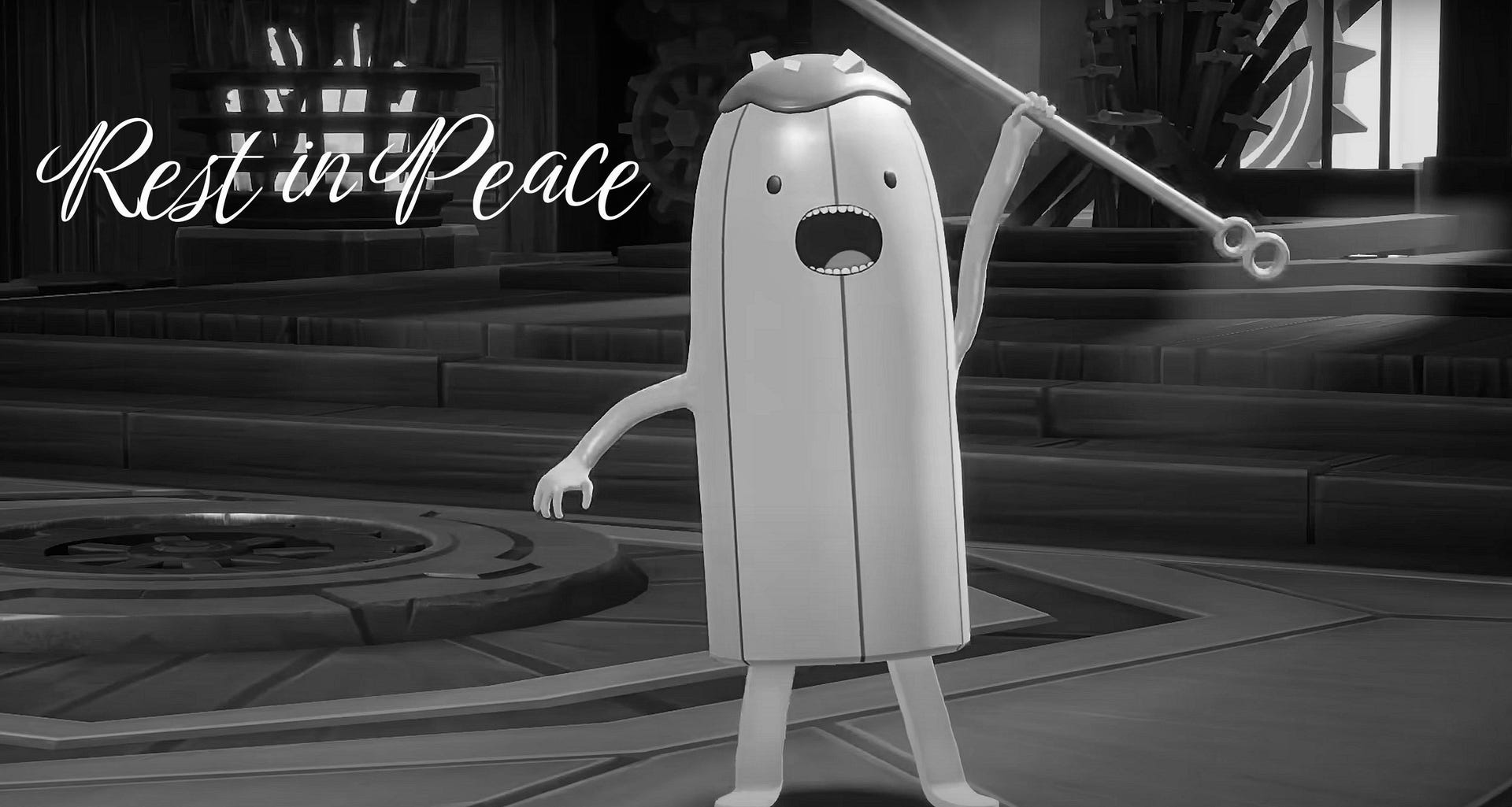Quentin Tarantino Is Right: Studios and Streamers Have Cheapened Movies
We’ve long known that Quentin Tarantino has imposed a 10-movie limit on himself, claiming that he plans to retire after directing his next picture, whatever that picture will be. But while speaking with critic and commentator Elvis Mitchell at the Sundance Film Festival, Tarantino put a new twist on his oft-discussed rule. He’s not working […] The post Quentin Tarantino Is Right: Studios and Streamers Have Cheapened Movies appeared first on Den of Geek.

We’ve long known that Quentin Tarantino has imposed a 10-movie limit on himself, claiming that he plans to retire after directing his next picture, whatever that picture will be. But while speaking with critic and commentator Elvis Mitchell at the Sundance Film Festival, Tarantino put a new twist on his oft-discussed rule. He’s not working on a movie at all anymore. Now he’s working on a play. He’ll get to that movie eventually, but given the state of the industry (among other reasons) he is in no hurry.
When asked why by Mitchell (as per) Variety), Tarantino responded with a powerful rant about the state of the industry. “What the fuck is a movie now?” he asked. “Something that plays in theaters for a token release for four fucking weeks? All right, and by the second week you can watch it on television. I didn’t get into all this for diminishing returns. I mean, it was bad enough in ’97. It was bad enough in 2019, and that was the last fucking year of movies. That was a shit deal, as far as I was concerned, the fact that it’s gotten drastically worse? [It’s just] a show pony exercise. Now the theatrical release, you know, and then like yeah, in two weeks, you can watch it on this [streamer] and that one.”
In short, Tarantino has turned to plays instead of movies because, first he wants to wait until his young children will be old enough to remember daddy showing them around a film set, but also, perhaps more importantly, because movies as Tarantino knew them when he was growing up no longer matter. And he’s right.
Money Muddies the Creative Waters
Even when Hollywood was just quaint farmland in California, the story of cinema was the story of the artist versus the businessman. In fact, filmmakers of the early 20th century came to Hollywood in part to take advantage of the longer sunny seasons, but also to escape the litigious Thomas Edison, who wanted to assert copyright control over every moving picture made in the country. As early as 1919, creators such as D.W. Griffith and Charlie Chaplin feared interference from studio heads so much that they established United Artists to defend their vision. Time and again, the costs of productions and the wild profits offered by a successful movie drove executives to feel entitled to advise on productions.
Filmmakers who want to defend their visions either have to resign themselves to working with small budgets and, like the recently departed David Lynch, hope they can garner enough of a following to support their projects, or get a patron who protects and profits from them. Tarantino himself had so much success because he was protected by Harvey Weinstein at Miramax, who, to put it mildly, was no great humanist.
Part of the reason we thrill to movies such as Dune: Part Two, Nickel Boys, The Brutalist, and Love Lies Bleeding is that they tell beautiful and compelling stories within a famously scared, rigid system. And for most of cinema history, the benefits have been enough for the artists to put up with the system. Ridley Scott couldn’t pay for a lavish production like The Last Duel or Gladiator all by himself, so he accepts that he needs a business with deep pockets to foot the bill. The hope for the audience is that the artist is a strong enough personality (which Scott certainly is) to bully his way through with his vision intact.
But the fact that a tried and true, bankable name like Tarantino wants to walk away from cinema proves something we’ve all suspected. The cost is becoming too great, and it may not be worth it for artists to express themselves through mainstream cinema for much longer.
Flowing Down the Wrong Stream
In theory, streaming is a great innovation. In theory, people who only have access to a three-screen Regal or AMC can see something beyond the usual Disney fare on their Netflix account. In theory, studios can greenlight different projects and distribute them through lower-stakes venues, prompting them to take more chances. Even better, access to the internet means that filmmakers can just make a movie and put it up on the internet.
To be sure, it sometimes has happened that way. The aforementioned David Lynch was one of the first to embrace digital filmmaking and distribution, using his Absurda website to publish his latest oddities and to sell copies of Eraserhead. Further, a miracle like Twin Peaks: The Return happened in part because Showtime wanted to draw subscribers to their service and needed a marquee name to get attention.
Yet too often studios have used the advent of streaming to simply replicate and expound upon their worst practices. Sure, Netflix or Apple might be the only companies willing to give Martin Scorsese money to make The Irishman and Killers of the Flower Moon, but what happens to those masterpieces? They get dumped on the service alongside its many other offerings, with very little push and promotion. Today you have to sort through all manner of stuff on Netflix to find The Irishman, a service that pushes its latest releases today only to bury them tomorrow.
If that’s how streaming services treat a bonafide master of the form like Scorsese, how much worse it for people trying to follow in his footsteps, especially if they aren’t straight white men? Gone is Roger Corman, who used his company to find and train the next generation of greats, even if they were making cost-effective genre cheapos. Here to stay is David Zaslav, whose tenure as head of the venerable Warner Bros. has been marked by the cancelation of completely or nearly finished movies, even those with major studio IP like Batgirl; Warner Bros. Discovery also attempted to virtually shutter TCM to save money, even though TCM remained a successful cable network. Despite what WBD’s logo says, quoting The Maltese Falcon‘s line about “the stuff that dreams are made of,” it’s been far from a fantasy for the talent losing their visions altogether—never mind those who fled the studio, including Christopher Nolan, after previous parent company management unilaterally placed the entire 2021 film slate directly on PVOD.
The movie system has been constructed in such a way that artists need people with lots of money. And since time immemorial, when the people with lots of money believe that they can make more money by creating garbage instead of art, they will create garbage nine times out of 10. What’s changed is they now believe they can make money by overturning exactly what makes cinema so special to its most ardent admirers, including Tarantino.
For Tarantino a movie isn’t just content or, Lord help us, “a second screen” to watch while scrolling on your phone; it’s an experience shared with friends and strangers in the dark; it’s a communal dream we all experience at the same time, and as (hopefully) intended by the artists who created it. Yet since the pandemic, the folks paying for the movies increasingly seem to be reinforcing the idea to viewers at home that films are now shovelware; content to be consumed but never experienced while keeping eyeballs glued to a subscription. Is that even cinema at this point? Definitely not as how Tarantino knew it and has fetishized it for the last 30 years onscreen.
The Loudest Voice in the Room
Sadly, there’s very little we can do. Sure, we can try to seek out the really good stuff that studios ignore and streamers pick up at festivals (Check out Hit Man on Netflix! Watch The People’s Joker!). But unless enough of us band together to demand better movies, the studios and streamers won’t care enough to listen.
And that’s why Tarantino’s comments matter so much. In an age of IP over individuals, Tarantino’s name still carries weight, and his next release will draw the eyes of movie nerds and the general public. Whichever studio bankrolls Tarantino’s next movie stands to make a lot of money. By speaking out against the current practices, Tarantino draws attention to an issue that affects most filmmakers and film fans, but his voice is too big to ignore.
Yeah, it sucks that we might have to wait even longer for Tarantino’s next and (hopefully not) final film. But if that’s what it takes to make studios and streamers change their ways, then it will be worth it.
The post Quentin Tarantino Is Right: Studios and Streamers Have Cheapened Movies appeared first on Den of Geek.













![From Gas Station to Google with Self-Taught Cloud Engineer Rishab Kumar [Podcast #158]](https://cdn.hashnode.com/res/hashnode/image/upload/v1738339892695/6b303b0a-c99c-4074-b4bd-104f98252c0c.png?#)
































































